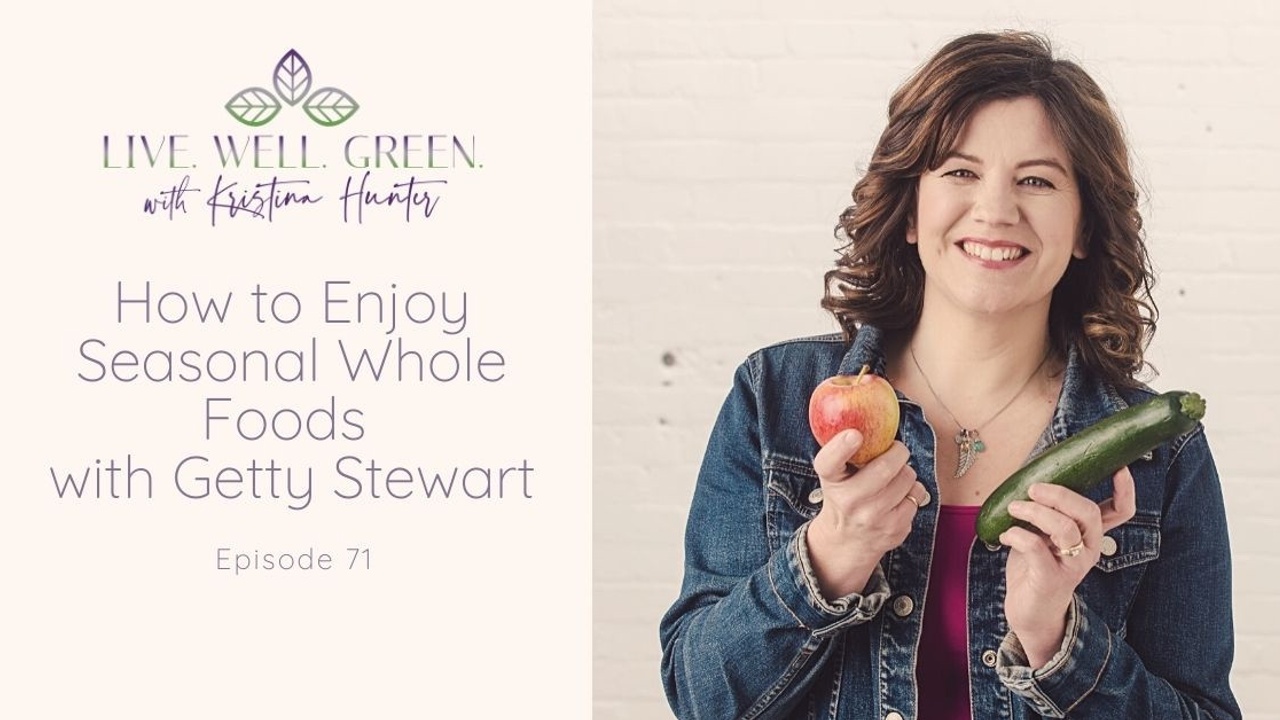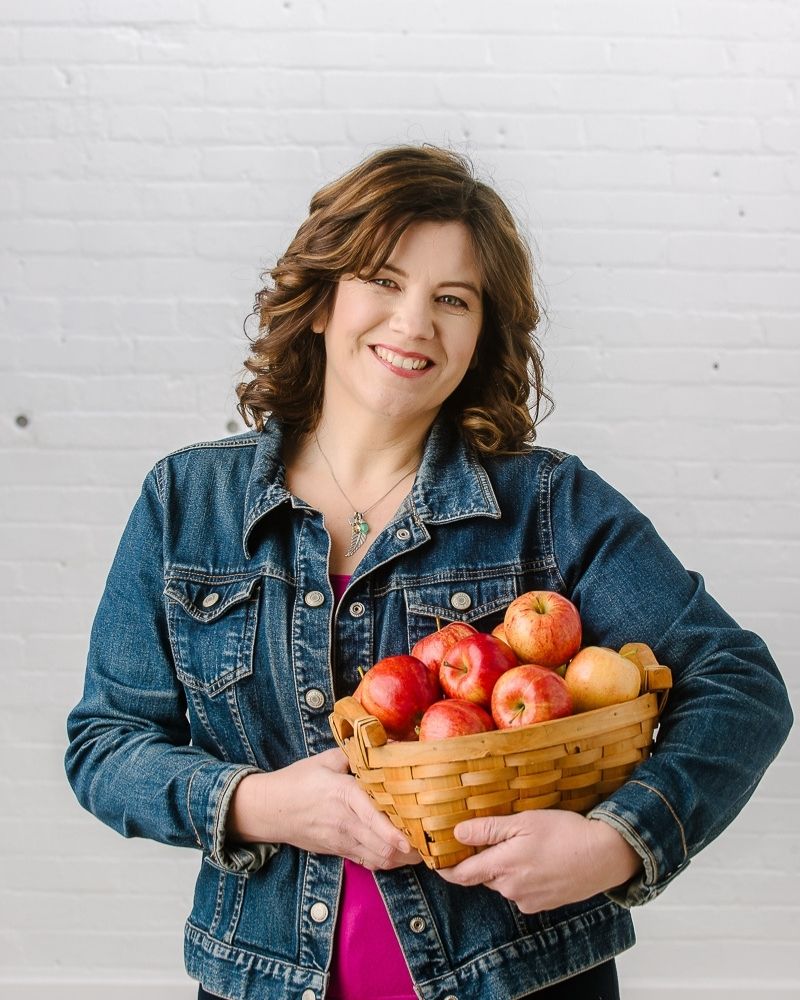How to enjoy seasonal whole foods with Getty Stewart

Eating whole foods - those that have not been processed or packaged, and that often are also local to us is the cornerstone of every healthy eating plan, and the bonus is that it is also really great for the planet. Eating whole foods and eating in season dramatically reduces the carbon emissions, waste and plastic associated with our foods.
Ok, we are sold, yes, it is the right thing to do for our bodies and for the planet. But, how exactly can I do this with my real-life constraints of time and money and other demands? That's where Getty Stewart comes in. She is a professional Home Economist and loves to help you eat these whole foods, and find ways to prepare them that are simple, flavourful and good for your body!
Follow the Calendar
We begin by talking about taking this easy approach to navigate food by simply following the calendar. By looking at what is in season locally first, we can plan meals that contain those ingredients when they are at their freshest, ripest, and have not traveled a long distance to us. Most of us have had the experience of tasting a fresh ripe strawberry or tomato when it is in season, and then being deeply disappointed by the taste of that same item when it is out of season.

So, when we follow the calendar to help us plan our meals, we are automatically getting the best, freshest version of that fruit or vegetable plus, when it is local we are reducing the distance that food has traveled and how long it has been stored. These, of course, are both aspects that are beneficial for the environment, reducing the food's carbon footprint, but they also deliver health and taste benefits when we are eating fresh food at its peak.
And, food that is local and in season also tends to be less expensive. So really, why bother paying for those over-priced strawberries that have traveled thousands of kilometers in the depths of winter, just to be disappointed when you eat them? Consider frozen berries when they are out of season to get the best nutritional punch for your money!

"Nature has set up a cycle of food that is best for nature and the creatures that eat that food."
But, we don't need to eat only fresh fruit and veggies when they are in season for you locally - thank goodness, as I live in a place with a very short growing season here in Manitoba. We can also look to the global seasonal foods calendar when planning our meals to get the benefit of in-season freshness all year round, and minimizing food storage, and maximizing taste and nutrition!
While the best foods for nutrition and for the environment are those that are minimally processed, local, and in season, we can always complement with foods that have traveled further distances, but when we do, let's try to make sure that they are in season somewhere not too far from us.
Add some summer harvest to your winter meals
Preserving the Harvest is a great way to enjoy the produce grown locally and picked at its peak ripeness. I just absolutely love taking out some of my homemade grape juice from the freezer in the depths of winter. It brings all of the joy of the summer and the nutrients that my grapes accumulated into my winter day.
As Getty says, it is quite simple, "Eat whole foods - eat simple - eat what nature is intending."
When you don't have a garden...
When you can't grow your own foods - and there are lots of reasons why we can't, we can try to access the freshest, local foods by heading to our local farmer's markets, or local greenhouse-grown produce. We can also consider supporting a local CSA - or Community Supported Agriculture program. This is where consumers help their local agricultural producers by sharing the risk of the growing season and guaranteeing that their produce will be sold.
We can even take advantage of this approach when shopping at the grocery store by simply looking for the whole, unprocessed foods. As they say, shop the perimeter of the grocery store where fresh items are sold. While there, we can take advantage of the seasonality and purchase what is fresh and in season and abundant. If you have a freezer at home, you can buy extra in-season and store it for later by simply freezing it.
I like to do this every year when I purchase local corn - really, there is nothing like that fresh sweet local corn, right? I simply husk the corn and cut off the kernels with a knife and pop it into a bag in the freezer to use over the winter. Local and delicious!
Resources
Stay connected with news and updates!
Join my mailing list to receive the latest news and updates. Your information will not be shared.

